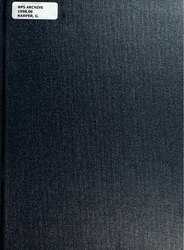File:Official ideology in the People's Republic of China - evolution and impact on foreign policy (IA officialideology00harp).pdf
From Wikimedia Commons, the free media repository
Jump to navigation
Jump to search

Size of this JPG preview of this PDF file: 441 × 599 pixels. Other resolutions: 176 × 240 pixels | 353 × 480 pixels | 565 × 768 pixels | 1,212 × 1,647 pixels.
Original file (1,212 × 1,647 pixels, file size: 5.67 MB, MIME type: application/pdf, 130 pages)
File information
Structured data
Captions
Captions
Add a one-line explanation of what this file represents
Summary[edit]
| Official ideology in the People's Republic of China - evolution and impact on foreign policy
( |
||
|---|---|---|
| Author |
Harper, Gerald F. |
|
| Title |
Official ideology in the People's Republic of China - evolution and impact on foreign policy |
|
| Publisher |
Monterey, California: Naval Postgraduate School;Springfield, Va.: Available from National Technical Information Service |
|
| Description |
Subjects: |
|
| Language | English | |
| Publication date |
1 June 1998 publication_date QS:P577,+1998-06-01T00:00:00Z/11 |
|
| Current location |
IA Collections: navalpostgraduateschoollibrary; fedlink; americana |
|
| Accession number |
officialideology00harp |
|
| Authority file | OCLC: 1049971602 | |
| Source | ||
Licensing[edit]
| Public domainPublic domainfalsefalse |
This work is in the public domain in the United States because it is a work prepared by an officer or employee of the United States Government as part of that person’s official duties under the terms of Title 17, Chapter 1, Section 105 of the US Code.
Note: This only applies to original works of the Federal Government and not to the work of any individual U.S. state, territory, commonwealth, county, municipality, or any other subdivision. This template also does not apply to postage stamp designs published by the United States Postal Service since 1978. (See § 313.6(C)(1) of Compendium of U.S. Copyright Office Practices). It also does not apply to certain US coins; see The US Mint Terms of Use.
|
 | |
| This file has been identified as being free of known restrictions under copyright law, including all related and neighboring rights. | ||
https://creativecommons.org/publicdomain/mark/1.0/PDMCreative Commons Public Domain Mark 1.0falsefalse
File history
Click on a date/time to view the file as it appeared at that time.
| Date/Time | Thumbnail | Dimensions | User | Comment | |
|---|---|---|---|---|---|
| current | 12:59, 23 July 2020 |  | 1,212 × 1,647, 130 pages (5.67 MB) | Fæ (talk | contribs) | FEDLINK - United States Federal Collection officialideology00harp (User talk:Fæ/IA books#Fork8) (batch 1993-2020 #23804) |
You cannot overwrite this file.
File usage on Commons
The following page uses this file:
Metadata
This file contains additional information such as Exif metadata which may have been added by the digital camera, scanner, or software program used to create or digitize it. If the file has been modified from its original state, some details such as the timestamp may not fully reflect those of the original file. The timestamp is only as accurate as the clock in the camera, and it may be completely wrong.
| Short title | Official ideology in the People's Republic of China - evolution and impact on foreign policy |
|---|---|
| Author | Harper, Gerald F. |
| Keywords | http://www.archive.org/details/officialideology00harp |
| Software used | Digitized by the Internet Archive |
| Conversion program | Recoded by LuraDocument PDF v2.53 |
| Encrypted | no |
| Page size |
|
| Version of PDF format | 1.5 |

